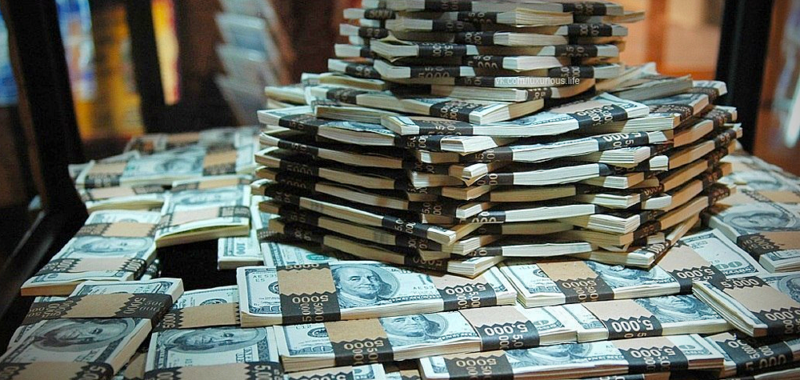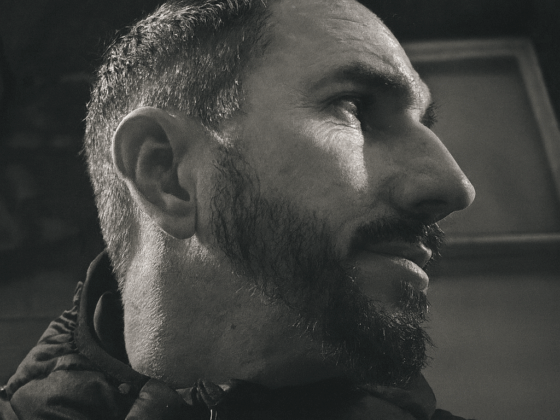Music streaming services such as Spotify or Apple Music have taken the center stage as the top method for album distribution by record companies but somehow the music industry's measurement of an artist's popularity or worth is about 15 years behind. The outdated measurement of physical albums sold is still being used as a key tracker for determining whether an album or single has gone Gold or Platinum. In today's digital era, many musicians release new tracks to global audiences the exact same day, thanks to sites like Bandcamp and Soundcloud, and physical album sales are less than an afterthought as a means for distributing new music. So why are we so behind the times in measuring an artist's popularity?
Today, the Recording Industry Association of America (RIAA), who have been self-entrusted with presenting platinum and gold certificates since 1958, have finally announced the inclusion of on-demand audio and video streaming, along with the traditional album sales, in awarding records a platinum or gold title. Besides being incredibly late to the scene, these new changes still generate a substantial amount of new concerns.
The RIAA announced that 17 artists will now be awarded newly designated gold or platinum record titles because of the inclusion of these new digital numbers: Kendrick Lamar's To Pimp a Butterfly, Big Sean's Dark Sky Paradise, and Coldplay's Ghost Stories to name a few (the Weeknd's Beauty Behind the Madness went double platinum but that's rightfully so). Even with Kendrick’s album now platinum, CEO Anthony Tiffith – of his record label, Top Dawg Entertainment – took to Twitter with his disapproval, saying, "We don't stand behind this RIAA bs."
First, how do these new changes work? Here’s a simple breakdown:
1,500 on-demand audio or video streams = 1 album sale.
(On-demand streaming refers to services like Spotify and Apple Music, not internet radio sites like Pandora.)
Here are the 3 major concerns with this change.
1) The RIAA's announcement didn't include any explicit details on how the 1,500 streams will differ if one stream of the same track will count as one stream towards a full album. Will 13 plays of just the hit single count the same as playing the full 13-track album? What if millions of fans only listen to 3 tracks of that album repeatedly, does the album never go platinum because the full album was not listened to? Vice-versa, what if millions of fans listen to just one track on an album, does the whole album get the recognition for going platinum?
2) "Payola" is the shady practice of paying radio stations cash under the table to put certain albums and tracks into their rotation. It was outlawed in the 1960s but that doesn't mean it fully went away. This pay-for-play still exists in promotional forms we like to call “record studio lobbying." This comes from record studios purchasing promotional time or setting up undisclosed partnerships to exclusively introduce certain radio stations with just their new music releases. Still, the number of times a disc jockey played a track wouldn’t count directly as an album sale. But what's to stop Spotify teaming up with Sony to set up an exclusive album release and pay marketing through the app to direct people to certain artists or strategically insert tracks into top playlists? Nothing actually.
In a detailed report released in 2015 by The Verge, a contract was obtained between Sony Music Entertainment and Spotify concerning the streaming service's license to utilize Sony Music’s catalog. The contract highlighted the various ways Sony pays to have their music streamed to the sites 20 million paying subscribers. At the time, the major conversation in the music industry was focused on how much (or how little) artists were being paid from a number of times their music is played. However, there is one section that now pertains to the current conversation at hand:
“..it (Spotify) is also required to give the music label free ad space on its service. The "credit for advertising inventory" clause mentioned in section 14(a) grants Sony Music a total of $9 million in ad space ($2.5 million in the first year, and $3 million and $3.5 million in the subsequent years).”
“..in section 14(p), the contract states Spotify must offer a portion of its available unsold ad inventory to Sony Music for free to allow the label to promote its own artists”
Basically, streaming services became even more powerful.
3) In 2004, Prince went on tour promoting his Musicology album. He included a copy of his new album with the ticket price and every fan was given a copy of his album when they arrived at the show. Every one of those albums counted toward his total Billboard and SoundScan (a point-of-sale tracking system) numbers – a very backward way of getting into Billboards "Top 100." Thankfully, people caught on quick and regulations were put in place to prevent that but what about free digital download codes? How are we regulating those? Even worse, if you remember when Apple had their iPhones automatically including that recent U2 LP, were those albums included in their final measurements as well?
Cary Sherman, CEO and chairman of the RIAA, released a statement:
For nearly six decades, whether it’s vinyl, CDs, downloads or now streams, the Gold & Platinum Program has adapted to recognize the benchmarks of success in an evolving music marketplace. We know that music listening—for both for albums and songs—is skyrocketing, yet that trend has not been reflected in our album certifications. Modernizing our Album Award to include music streaming is the next logical step in the continued evolution of Gold & Platinum Awards, and doing so enables RIAA to fully reward the success of artists’ albums today.
The music industry continues to evolve alongside technology. Unfortunately, the way it does business is too slow to keep up. RIAA will need to provide further details on how they expect to lay out explicit measurements for streams coming from clicked ads, digital download codes and more.
With all of these changes and new concerns, we also need to ask the bigger question: Do people really even care about going "platinum" anymore?









